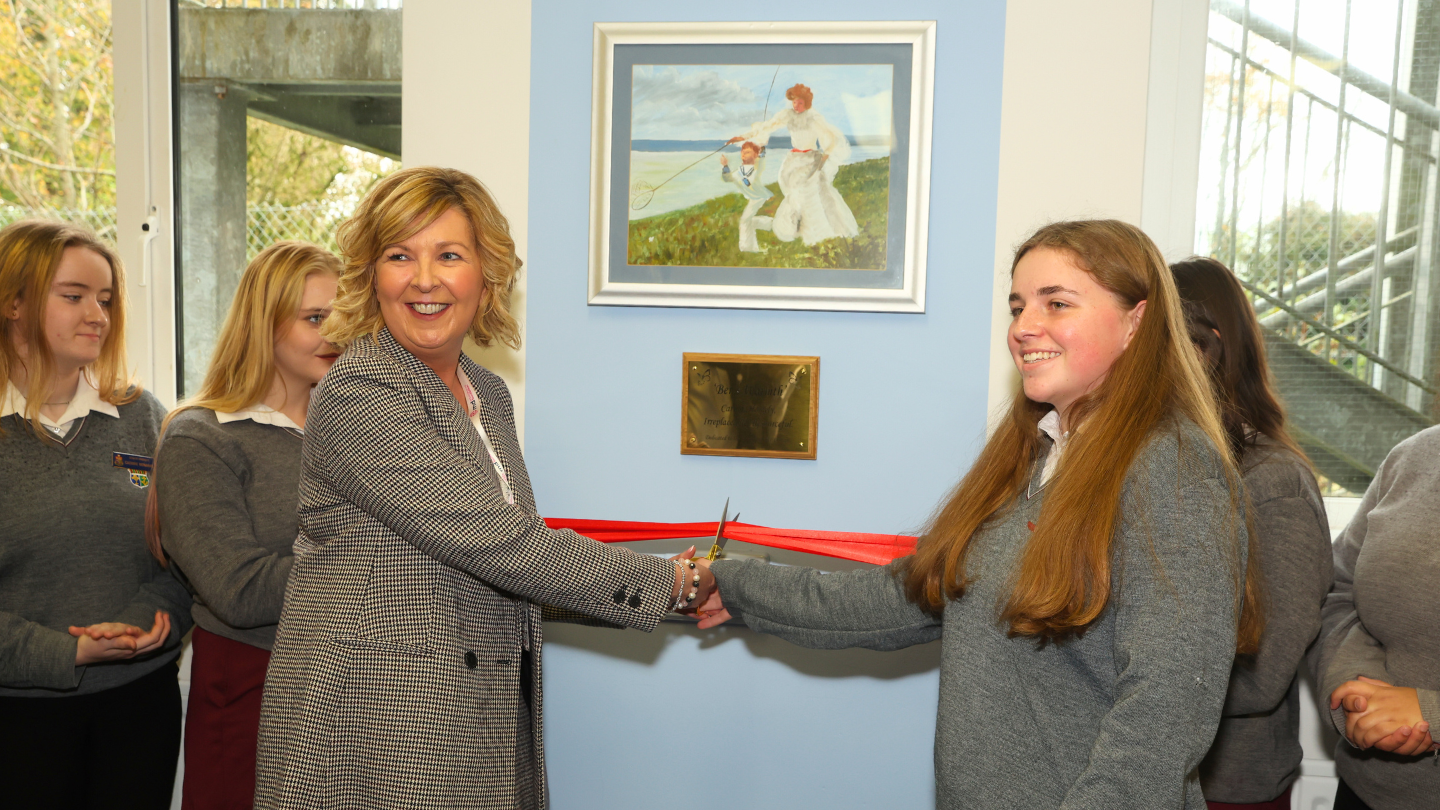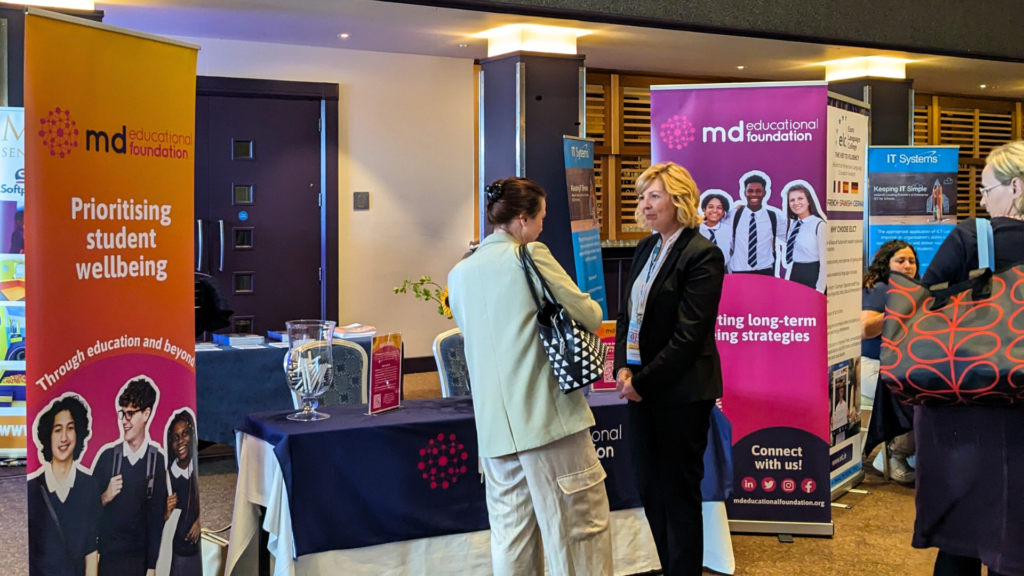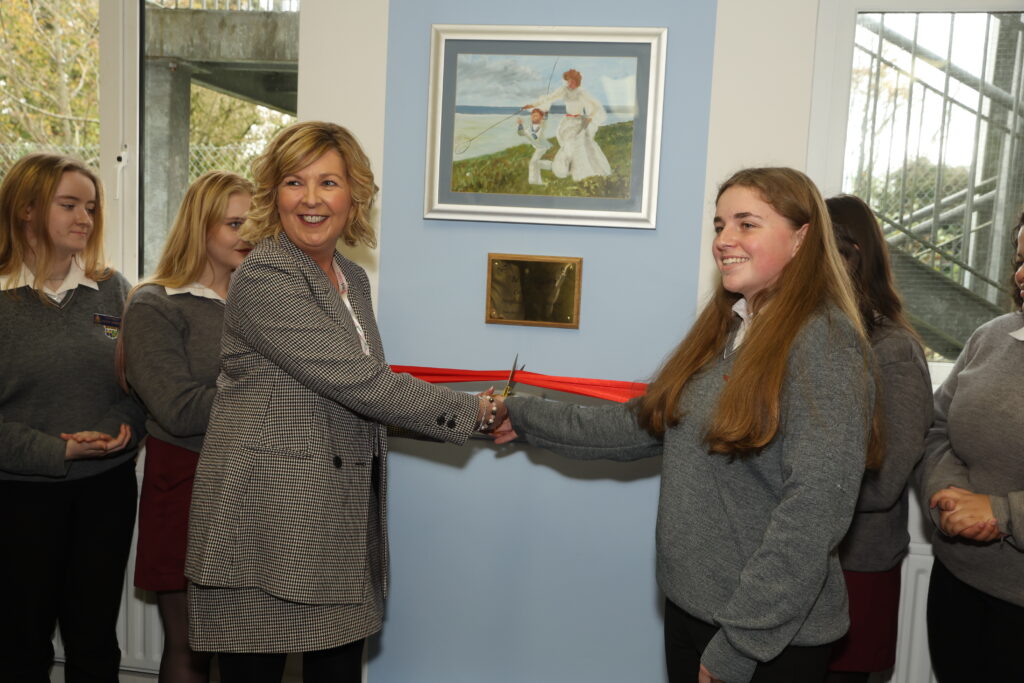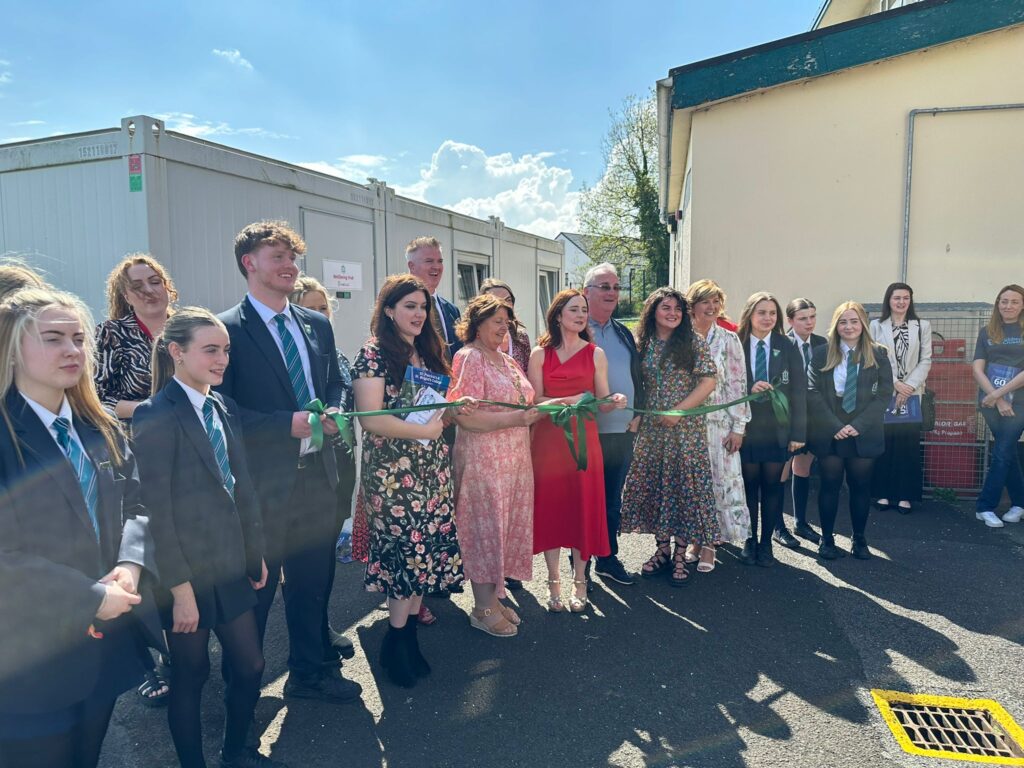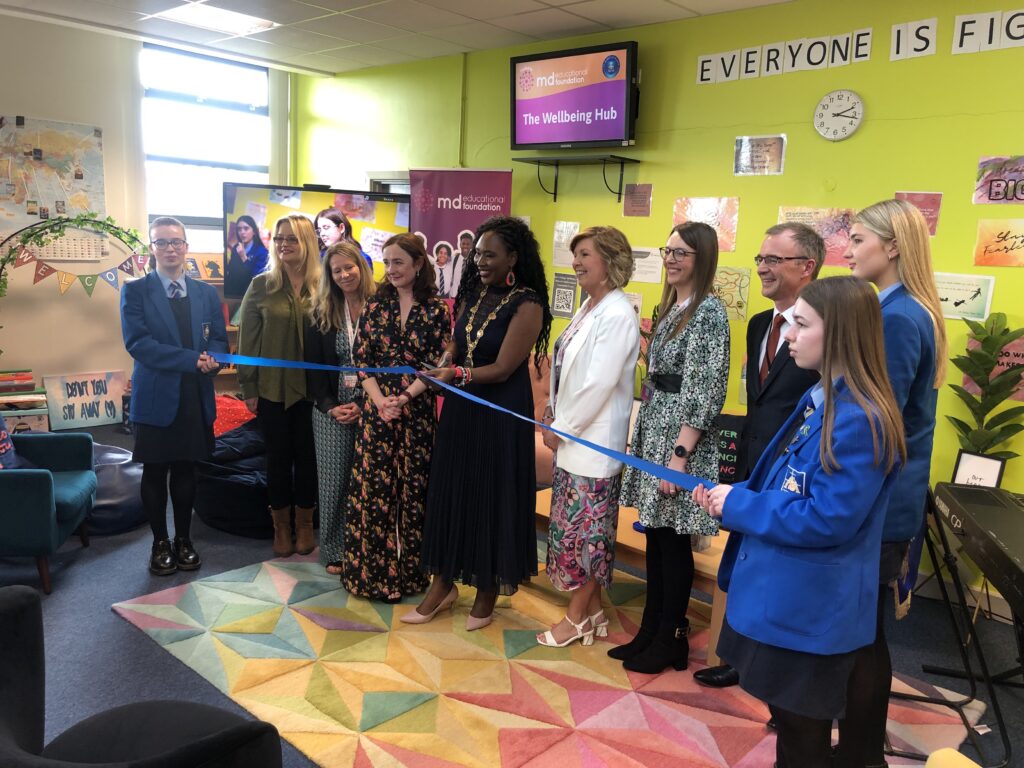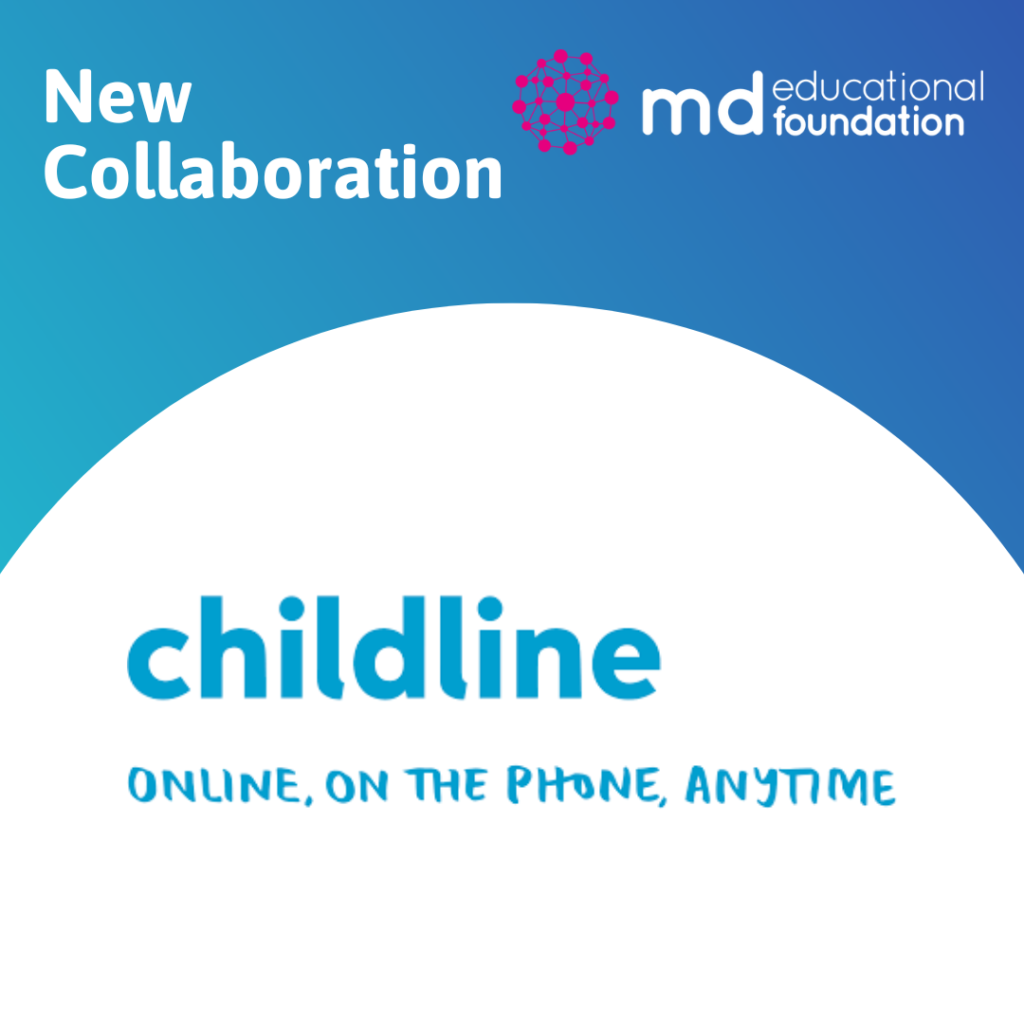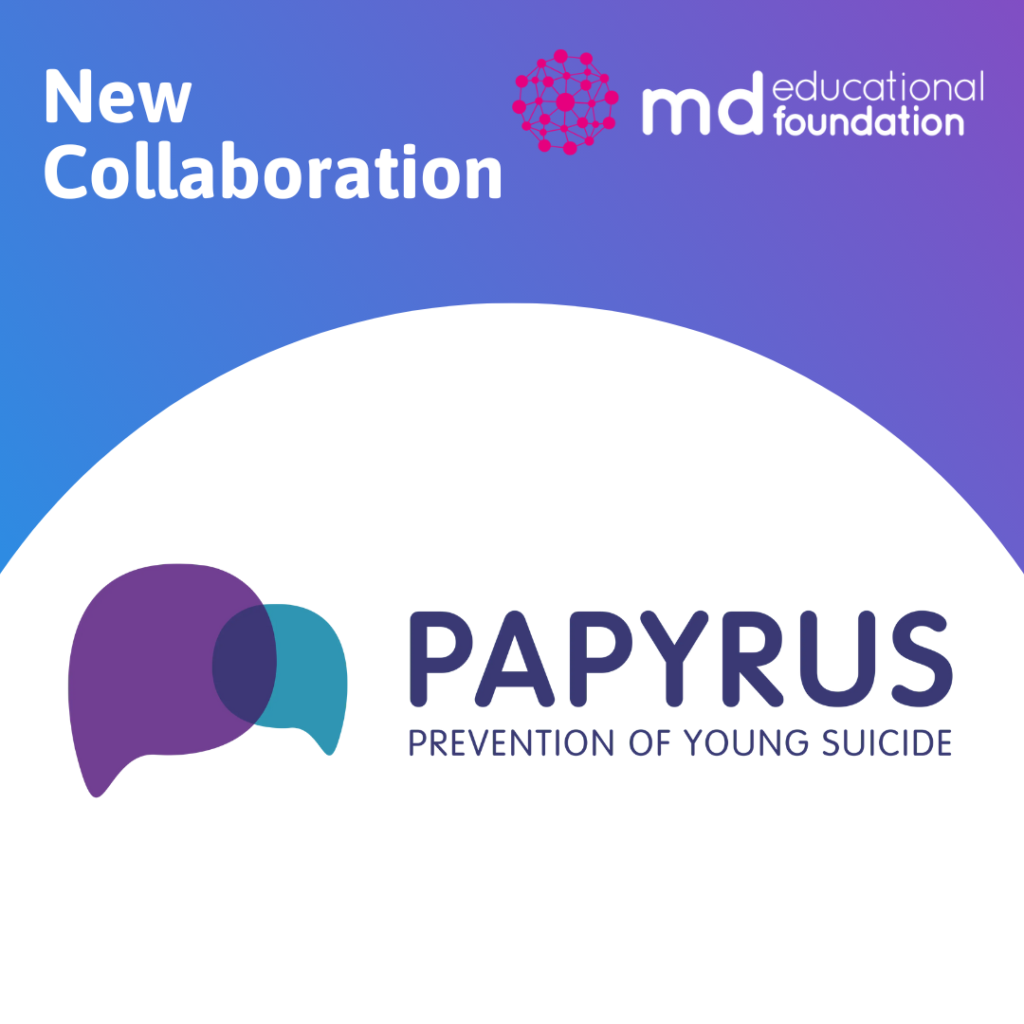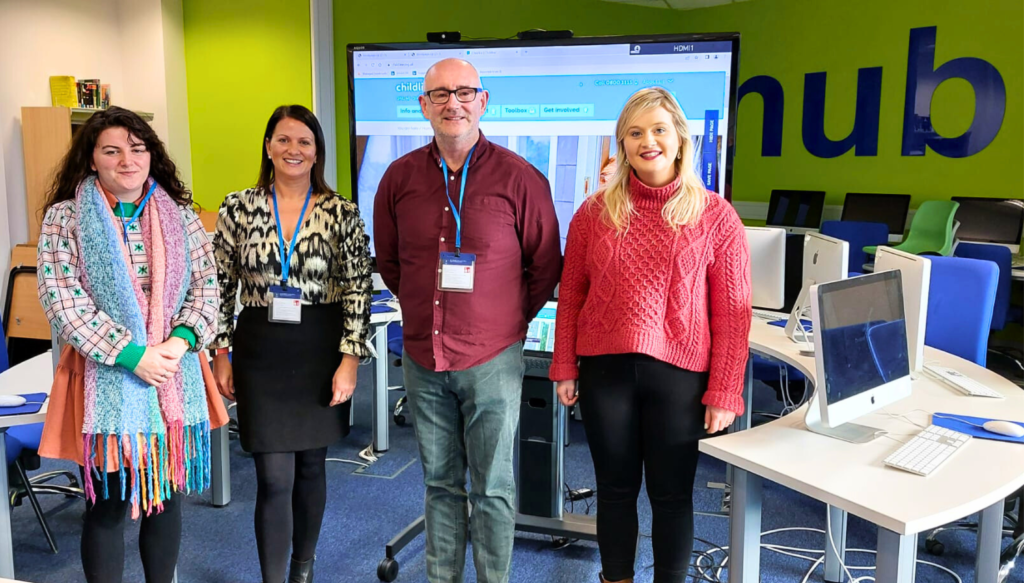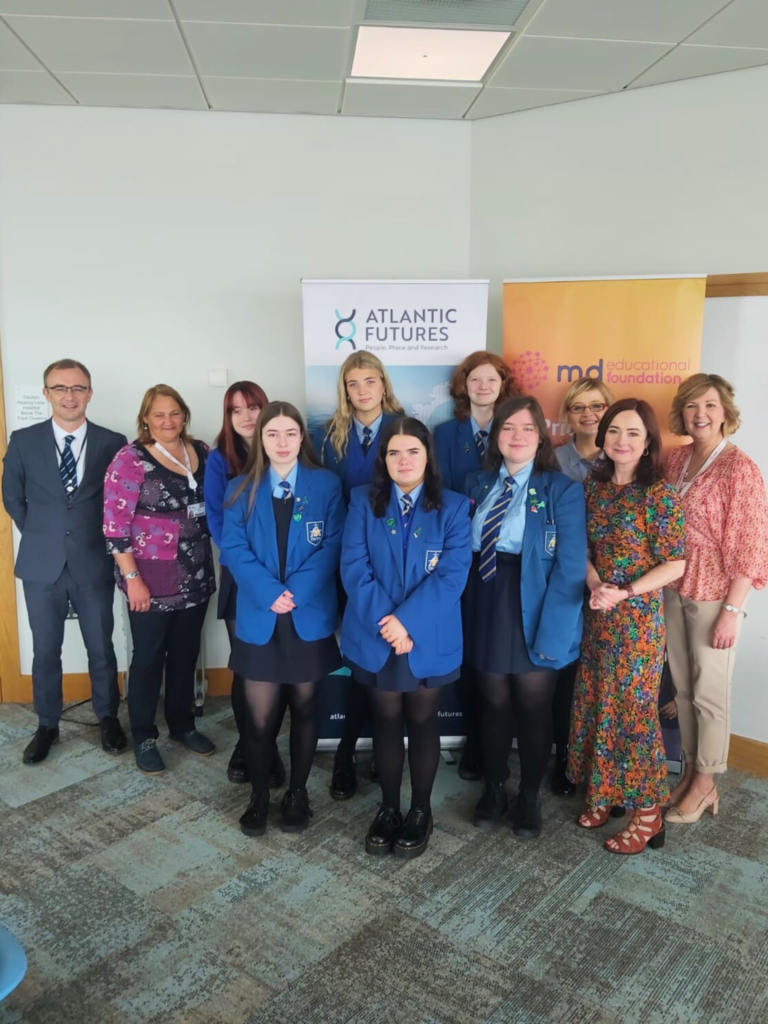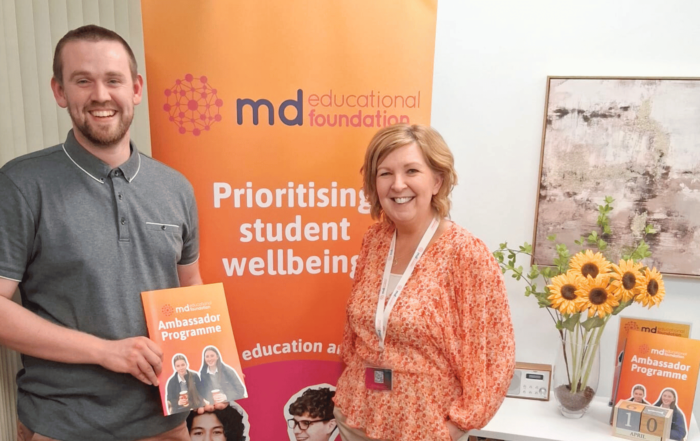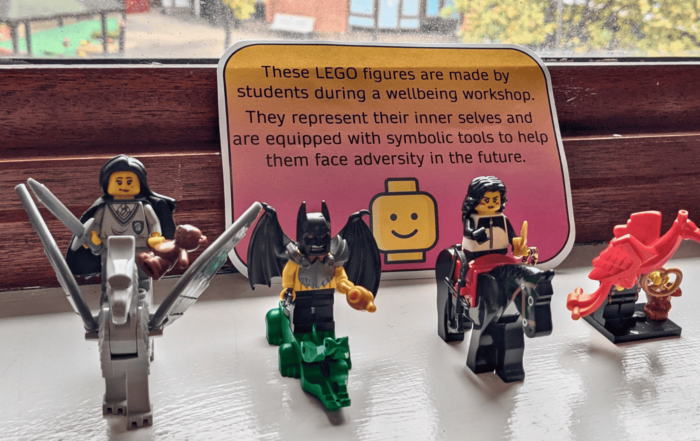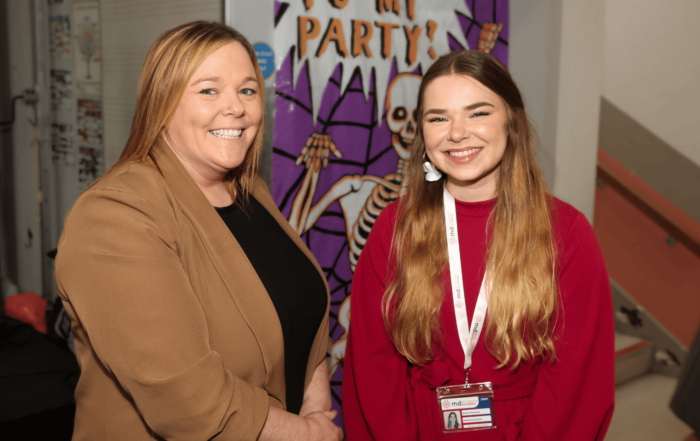Rates of a probable mental disorder in young people aged 17 to 19 years, has risen from 1 in 10 in 2017 to 1 in 4 in 2022 (NHS Digital, 2022). This proves that, now more than ever, there are significant challenges facing the education and wellbeing sectors in the UK – which is why intervention is needed and we’re stepping up.
mdeducational foundation is a charity that prioritises student wellbeing by providing fully funded wellbeing support in schools across the UK and Ireland. We enable educational settings to kickstart their long-term wellbeing strategies by providing a three-year salary-funded commitment to placing dedicated wellbeing professionals within post-16 educational settings across the UK and Ireland.
We’re proud to pave the way for a more inclusive and supportive environment for our young people. Below, we share a charity snapshot as we talk to Deirdre Doherty, the Director of Schools and Partnerships. In her role, Deirdre supports the schools we collaborate with and develops meaningful partnerships with like-minded organisations to make sure we’re on a good path to continue our charity’s mission. Join us in getting to know Deirdre and learning more about what happens behind the scenes.
What drew you to this role and how does your expertise contribute to the charity’s mission?
“Firstly what drew me to the role was, as a parent of two (now adult) children, I’m all-too-aware of the impact that not only the school environment, but also wellbeing support can have on a young person. I see how wellbeing is essential in every aspect of life and that support for this within the education sector is a must!
Before joining mdeducational foundation, I worked as a Human Resources Professional across many different organisations within the public and private sector, often dealing with very challenging and complex situations. When my children were young, I also had the privilege of being a Childline Volunteer Counsellor where, apart from learning valuable skills I had a very rewarding experience, being able to support children and young people when they often felt they had no one else to turn to.

It’s this passion, along with my people management and engagement skills that I bring to my current role, enabling me to proactively support our charity with our mission to ensure all post-16 students feel supported in every aspect of their wellbeing and most importantly helping them on their journey to adulthood.“
What does being the Director of Schools and Partnerships involve?
“My role is very much two-fold. In terms of schools, I take lead responsibility for our Schools Application and Onboarding Team. As a lead for this team I’m very much considered to be the custodian of the funding. It’s also part of my role to grow meaningful school collaborations across all our regions within the UK and Ireland and to make sure that within our contracted schools, the provision of high-quality wellbeing support is delivered via our funded Wellbeing Leads, who ultimately work towards making a difference to the life outcomes of the students.
We are all about prioritising student wellbeing. Therefore another part of my role is to proactively develop partnerships that align with our mission to deliver benefits that ultimately support our strategic plan. This involves building and maintaining strong relationships with a range of organisations to ensure long-term engagement.
A lovely part of my role is that I get the opportunity to represent our amazing charity at events and networking opportunities, such as the Annual NAPD Conference, Ulster University International Conference and events hosted by the Mental Health Champion, NI, including the Crisis Services and Suicide Prevention in Northern Ireland Conference. Not to mention having the chance to be involved in all of the amazing school launches that are currently taking place across the regions. These are wonderful events that celebrate our young people embracing this initiative. Read more about our launch in Ireland and our experience at the NAPD Conference”
How do you work with schools on their long-term wellbeing strategies?
“We work with schools by enabling them to embed the programmes, resources etc. throughout their curriculum specifically for their post-16 students. This often helps the leadership team within the school to think differently about the wellbeing of this group of students and identify that their needs might not be the same as for junior students.
By embedding the support within the school environment, wellbeing becomes the norm rather than an add-on, with schools seeing the benefits both within their young people and also resonating across the the whole school culture.
We also work with the schools to constantly evaluate and measure the impact of the wellbeing support. This evidence base is critical for sustaining a long-term strategy. I was once told that ‘feedback is a gift’; and this is very much the case in the work we do with schools. By demonstrating the worth of what we do, our hope is that longer-term we’ll be able to help each school step up their commitment to sustaining a long-term wellbeing strategy.”
What do you believe are the most significant challenges faced by schools in supporting student wellbeing, and how can we address them?
“It’s no surprise that one of the growing challenges faced by schools is how emotional struggles impact achievement. The evidence for which is well-documented.
Through our collaboration with schools, we hear first-hand that the most significant challenge they face is financial funding for dedicated staff, as well as lack of resources, space, and time. Balancing their teaching workload and academic expectation can be a challenge when it comes to also making sure they meet the mental health and wellbeing needs of their students. While the intention is always to support their young students, some teaching staff lack the training or skills to identify the support that’s needed, particularly for those with more complex needs.
The support provided by mdeducational foundation addresses these issues in abundance. We don’t just provide the funding and walk away – we stick around to support their journey as they kickstart their long-term wellbeing strategy. We provide contracted schools with significant funding – a three-year salary-funded commitment to placing a full-time dedicated wellbeing professional specifically to support their post-16 students. This support takes place within the Wellbeing Hub created in collaboration with each school and their students, providing a safe, non-judgmental space that fosters a sense of wellbeing and allows our young people to have their voices heard.
Alongside providing the funding for the schools, we also make sure to support the Wellbeing Leads in their roles. As well as being part of the network of Wellbeing Leads who can share and develop their own best practice, and they are also all supported via our clinical supervision model, that supports the work they do within their specific school. A few months back, we shared an interview with Catherine Llewellyn, one of our Clinical Supervisors, who works closely with the Wellbeing Leads. Read what Catherine had to say and learn more about what Clinical Supervisors do to support our Wellbeing Leads.
All Wellbeing Leads have access to our dedicated internal Resource Hub that’s continuously updated with relevant resources driven by student voice. But these support resources can also be tailored to take account of the specific school context at any given time. The resources include Psychoeducation & group programmes such as exam stress, loss and grief, body image, suicide awareness, sexual health and relationships, to name a few. In our most recent blog, Catherine shares how to support young people in dealing with grief and loss – read the article here.
We also provide targeted prevention programmes to support a range of pupil needs, such as young carers.”
What kind of partnerships and collaborations does mdeducational foundation have, and why?
“We’re very lucky to be in a position to partner and collaborate with many different types of organisations who align with our overall strategic perspective.
These collaborations vary widely from regional statutory/government agencies, academia and coalition/research consortiums to other charity organisations. One of the reasons we partner with these organisations is to support the present and future needs of the foundation.
The reason for having these different partnerships varies. Some are complimentary, mutually beneficial or involve helpful knowledge exchange. We only partner with those who align with our vision, mission and values – and always towards a common goal – the focus on the wellbeing of young people.
It’s also extremely important for us as a foundation to work alongside reputable organisations (such as CYPMHC) in terms of impact, so together we can speak out about the mental health of our young people.”
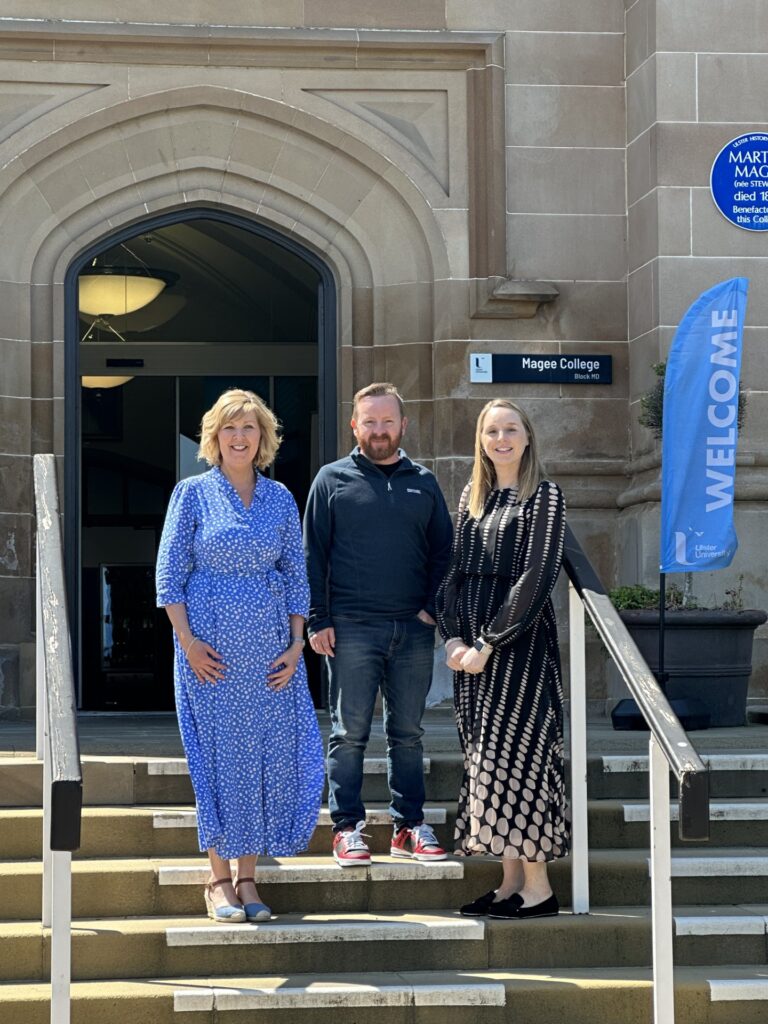
mdeducational foundation meeting with Ulster University
Can you share some success stories about how these partnerships have positively impacted student wellbeing?
“There are numerous regional support services that our Wellbeing Leads will continually connect with at a local level but, as well as this, we’ve been extremely lucky to have had the opportunity to work with wonderful organisations like Childline and PAPYRUS Prevention of Young Suicide, who provide our Wellbeing Leads with resources to support their promotion of positive mental health and overall wellbeing for our young people.
Just recently, a group of our Wellbeing Leads placed in schools across Northern Ireland met with Childline. They had a wonderful session with Childline as they introduced the services and resources available for our Wellbeing Leads to use and share with their students. From our collaboration with Childline, our Wellbeing Leads have been able to access high-quality resources that help them better support young people’s wellbeing.
Our success stories come from the most important piece in all of this – our students. Perhaps one that recently stands out to me is independent feedback from a few different school leaders who each said they’d noticed a positive change in the stress levels of their year 13’s since the introduction of the wellbeing curriculum.
“A student who refused to attend school for much of year 10 and 11, now has 90% attendance and some of the highest grades amongst their classes”
One of our Principals told us that this impact is purely down to the intervention with the Wellbeing Lead provided by ourselves. We also talked with one of our Wellbeing Leads, Andrew, about the practical and impactful steps that can be taken to support young people and help them with school attendance – read our interview with Andrew here.
Partnerships are a vital piece of the puzzle in how we positively impact student wellbeing. In one example a Wellbeing Lead supported a young person to access specialist counselling services locally, allowing them to talk about things they’d never talked about before because of the fear of being judged or rejected.
“Overall, my journey with personal struggles and having to do exams simultaneously was very difficult, but I got through it and now have completed my exams. This wouldn’t have happened if I didn’t have the Wellbeing Hub – using it as my safe zone and also a quiet cosy place to study. I now have a much clearer mind and confidence in myself for future plans”.
“I feel hope now, for what seems like the first time in my life.” was what one student said. And this is exactly why we do what we do!
I always recall one of my early conversations with our founders Miriam and Tarquin, when they said if their funding helps change the path of at least one young person in a school, it has been worth every penny!”
What kind of partnerships is mdeducational foundation looking for in the future?
“The future partnerships with mdeducational foundation are really promising. We are still on our journey and are delighted with our growth to date as we work towards our charity’s vision and mission.
A key part of our focus moving forwards will be in our partnerships, predominantly in terms of research and innovation, to facilitate our continued journey towards prioritising student wellbeing. The right partnerships will allow us to further develop and improve our wellbeing curriculum and support our approach to normalising student psychological fitness and resilience through guidance and intervention.
Highlighting the importance of evidence-based practice is an important area for our foundation as we grow. Our newest partnerships with Ulster University and Pneuma Healthcare will allow us to explore more effective solutions when prioritising student wellbeing. Our team was excited to form new relationships this year when we attended and exhibited at the Second International Digital Mental Health and Wellbeing Conference at Ulster University.
As we look to expand our schools regionally in the future, we will also continue to partner with all relevant educational bodies and stakeholders to fully understand the specific regional needs and grow the foundation within these areas. Always with the common goal – a focus on the wellbeing of young people.”
How do you see the future of mdeducational foundation and your role within it, particularly when it comes to expanding and strengthening our support for schools?
“As a result of unprecedented demand from schools, our funding for 2024 and 2025 has now closed. The challenge for our Applications Team will be to support our longer-term schools plan over the next number of years and beyond as we aim to expand our school reach across the rest of the UK, including Scotland, Wales and Ireland.
To do this successfully and make sure we fully understand specific regional needs, I’ll continue to partner with all relevant educational bodies and stakeholders across those areas, all with the end goal of helping more educational settings and schools support their students’ wellbeing.
Our future is looking bright!”
To finish up, do you have a favourite personal wellbeing tip you can share with us?
“I have two favourite ways to support my wellbeing:
One involves my love of singing! I’m part of the wonderful and fun ‘Encore Contemporary Choir’ in Derry, Northern Ireland. We recently celebrated our 13th birthday by performing to a sold-out audience! Even better, research has confirmed that choir singing promotes wellness, reduces anxiety and boosts the immune system, and I can definitely vouch for this.
I’ve also been known to visit a spa or two… or three! I love spending time with my sister and girlfriends. For me, taking time for self-care involves the perfect blend of relaxation with lots and lots of laughter… We call it the best therapy for mind and body!”

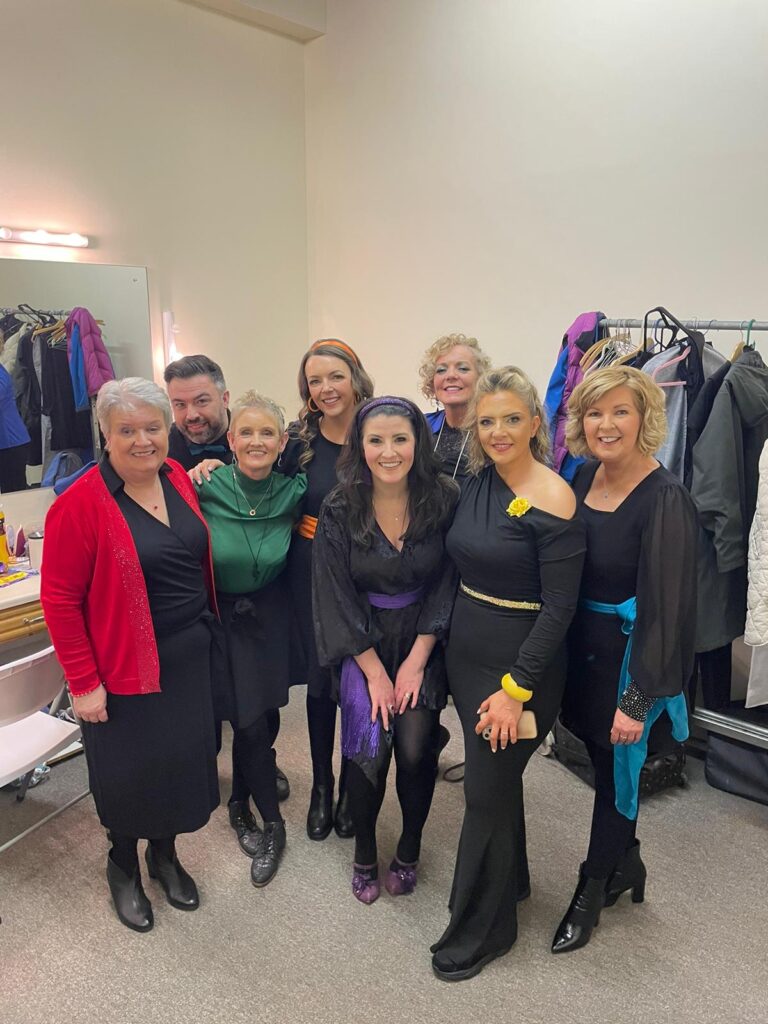
Thank you, Deirdre, for sharing what goes on behind the scenes of your role. It’s been so insightful!
Prioritising student wellbeing through education and beyond
mdeducational foundation is a charity that provides a three-year salary-funded commitment to placing dedicated wellbeing professionals within educational settings, enabling them to kickstart their long-term wellbeing strategies.
Related posts
Championing student wellbeing: Meet James Sweeney, the first mdeducational foundation Ambassador
At mdeducational foundation, we’re committed to prioritising student wellbeing - and now, we’re continuing that mission by inviting members of our community to join us in championing a brighter future for young people. We’re [...]
6 mental health workshops to support and improve the wellbeing of young people in schools
Wellbeing workshops are a great way to promote positive wellbeing, encourage young people to look after their mental health and remove the stigma around mental health and wellbeing. In schools, workshops can provide many [...]
Shining the spotlight on student wellbeing: Meet Susanna Neuvonen, Marketing Executive at mdeducational foundation
At mdeducational foundation, we’re dedicated to prioritising student wellbeing by providing fully funded support in schools and educational settings across the UK and Ireland. Our mission is to ensure that all post-16 students feel supported [...]
